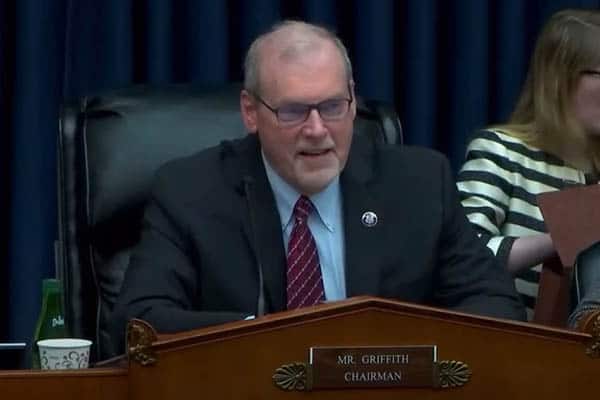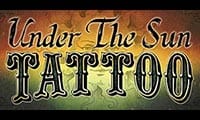Congressman Griffith Weekly Newsletter
 The Supreme Court
The Supreme Court
Throughout June, the Supreme Court released a series of decisions in cases they have been considering since last October. In event that you missed them, I will discuss five decisions below that are of particular interest.
Working on the Sabbath
In Groff v. DeJoy, the Supreme Court was tasked with considering religious liberty and employment accommodations under Title VII of the Civil Rights Act. Gerald E. Groff sued his employer, the U.S. Postal Service, after he was disciplined for refusing to work on Sunday, based on his evangelical beliefs. In a 9-0 decision, the Court ruled in Groff’s favor, stating that an employer must accommodate an employee’s religious beliefs unless it can show that doing so would “result in substantial increased costs in relation to the conduct of” the employer’s business.
The ruling in this case is a win for the First Amendment. Our country was founded on the principle of religious freedom, and it is important we uphold this belief. Particularly as Virginians, where the first statute of religious freedom anywhere in the world was passed. Written by Thomas Jefferson, it set forth the principle that people of all faiths should be protected in practicing their religion.
Religious Freedom in Web Designing
In 303 Creative LLC v. Ellis, the Supreme Court was tasked with considering if a state’s anti-discrimination laws can require designers to create works that recognize same-sex marriages, when doing so would come into conflict with the designers’ religious beliefs. In this case, a website designer in Colorado argued that the state’s anti-discrimination law violated her rights. In a 6-3 decision, the Court ruled that Colorado cannot “force an individual to speak in ways that align with its [the state] views but defy her conscience about a matter of major significance.”
Another win for the First Amendment and religious liberty! The government cannot, and should not, force Americans to speak in ways that misalign with their sincerely held religious beliefs.
Affirmative Action
In Students for Fair Admissions v. Harvard, the Supreme Court was tasked with deciding if race-based affirmative action programs in college and universities violate the Equal Protection Clause of the Fourteenth Amendment. The petitioners argued that Harvard University’s admission process discriminated against Asian Americans. In a 6-2 decision, the Court ruled that affirmative action did indeed violate the Equal Protection Clause, stating that colleges and universities could no longer consider race as a factor when determining admission of an applicant.
In this case, I think the Court came to the correct conclusion as affirmative action, judging a student on the basis of their race, is contrary to our Constitutional principles. While an argument might have been plausible in past decades, the Supreme Court itself acknowledged years ago, the time would come when affirmative action, to correct past wrongs, would no longer be appropriate.
Biden v. Nebraska
In Biden v. Nebraska, the Supreme Court took up a case filed by multiple states challenging President Biden’s move to cancel $10,000 in student loans for borrowers earning less than $125,000 individually, or $250,000 if married. President Biden claimed his Administration had authority under the HEROES Act to cancel the loans. In a 6-3 decision, the Court ruled the HEROES Act did not authorize the debt-relief program.
The Administration’s student loan forgiveness plan would cost American taxpayers more than $400 billion. Constitutionally, a decision to spend money on a new program needs to be made in the Halls of Congress, not by the President acting on his own.
Moore v. Harper
In Moore v. Harper, the Supreme Court assessed whether state legislatures have sole authority to establish laws related to implementing federal elections.
The case stemmed from the redistricting of North Carolina’s congressional districts following the 2020 U.S. Census, in which the North Carolina courts struck down the new districts, finding them too partisan under North Carolina’s Constitution. In a 6-3 decision, the Court ruled that the Elections Clause does not give state legislatures sole power over federal elections.
I disagree with the ruling as it takes power away from the state legislature, which I believe is contrary to the plain reading of the Constitution.
The Supreme Court will meet again in the fall to begin their next term, where they will resume hearing new cases.
If you have questions, concerns, or comments, feel free to contact my office. You can call my Abingdon office at 276-525-1405 or my Christiansburg office at 540-381-5671. To reach my office via email, please visit my website at www.morgangriffith.house.gov. Also on my website is the latest material from my office, including information on votes recently taken on the floor of the House of Representatives.










July 7, 2023 @ 11:22 am
Griffith mentioned the Supreme Court. What is Griffith’s opinion of Clarence Thomas taking “gifts” from Harlan Crow? This has been going on for years without reproach. Undeclared and he didn’t recuse himself from cases brought before the court that Crow benefitted from. What is Griffith’s opinion of Samuel Alito and Paul Singer “gifts?” Undeclared and he didn’t recuse himself from cases brought before the court that Singer benefitted from. Alito is a multimillionaire who doesn’t need kickbacks to make it on his salary. He married well. Clarence Thomas and his wife earn enough to not need payola. It gives the appearance they are bribed.
The students against Affirmative Action are incorrect to believe a black or brown student took their spot. Walk around Harvard, Stanford, Yale, Princeton. Notice the enrolled students. The majority are white. The black and brown students you do see earned admission like everyone else. Race question was optional and was used to see if the applicant pool was diverse. The information wasn’t a replacement for test scores and academic achievement. The Legacy students and big donor students are admitted with that being used as criteria. If you can build a building, put your name on it and admit your child. That is who students should be against. That wealthy unqualified student is walking around campus while you blame the .000001% of students admitted. The ruling doesn’t change admittance at universities on paper. It means legacy and wealthy students will still be taking those seats. Black and brown students still have to earn admission with academic achievement.
The student loan forgiveness plan would keep the economy boosted. Republican voting students want this also. We need healthcare professionals, police officers, vocational trained, teachers, etc. The education is not free. Congress won’t pass an increase of minimum wage so wages are behind. Congress should require Payroll Protection Loan recipients to pay it back. That cost taxpayers more than the student loan proposal. Community College isn’t free and professions that require more education are not free. Qualified students in Healthcare being allowed to go free would ease the shortage.
I agree with their decision on whether state legislatures have sole authority to establish laws related to implementing federal elections. This is what the ex-president wanted the states to do in 2020. Throw out votes that he didn’t like and declare him the winner. Votes be damned. No, that is not how our elections should work.
The Supreme Court didn’t bother to ask questions about the website designer case. The website designer cited a request from a man who says he never asked to work with her. The man is married to a woman for over 15 years and said he never contacted the website designer to create a wedding website. He also says he can design his own websites if he did need one. He can’t believe the Supreme Court didn’t do due diligence on the claim before ruling on it. The decision will stand despite the claim being made up. That is a setback for equality for all people. Once discrimination is allowed on one classification, it will spread. You don’t want to hire a Jewish person because they need to be off Friday evening until Saturday evening every week.
The Jewish Sabbath begins every Friday at sunset and ends Saturday at nightfall. It is a day of prayer and study and no work, writing, commerce, or travel is permitted. You take it to the Supreme Court and they agree that companies can refuse to hire Jewish people. Seventh Day Adventist? To help in keeping the Sabbath holy, Adventists abstain from secular work on Saturday. A person doesn’t want to hire them because the business provides services on Saturday and everyone must work Saturday. To the Supreme Court it goes. It is a slippery slope
July 7, 2023 @ 10:26 am
So you are also onboard with Islamic women being allowed to wear masks fire their work is badges, Hebrews being provided with a kosher lunch room, and Seventh Day Adventists being off on Wednesday, and Atheists being provided with non-religious schools.
Cool. Make America Great Again